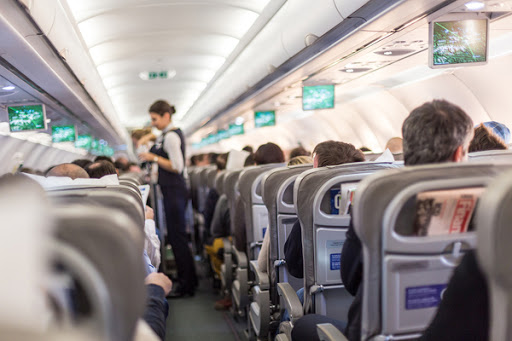
International passenger traffic down 72pc in January, says report
GENEVA, March 2, 2021
The international passenger traffic fell in January with the total demand (revenue passenger kilometers) down 72 per cent compared to the same period the previous year. It has been worse than the 69.7% year-over-year decline recorded in December, according to IATA report.
The passenger traffic fell in January with the total demand (measured in revenue passenger kilometers (RPKs) was down 72.0% compared to January 2019. That was worse than the 69.7% year-over-year decline recorded in December 2020.
The international passenger traffic fell in January both compared to pre-Covid levels (January 2019) and compared to the immediate month prior (December 2020).
Total demand in January (measured in revenue passenger kilometers or RPKs) was down 72% compared to January 2019. It has been worse than the 69.7% year-over-year decline recorded in December last year, according to The International Air Transport Association (IATA).
On the regional scenario, IATA said the Middle Eastern airlines saw demand plunge 82.3% in January compared to last year, which was broadly unchanged from an 82.6% demand drop in December versus a year ago.
The capacity too fell 67.6%, and load factor declined 33.9 percentage points to 40.8%.
According to IATA, the total domestic demand is down 47.4% versus pre-crisis (January 2019) levels. In December it fell 42.9% over the previous year. This weakening is largely driven by stricter domestic travel controls in China over the Lunar New Year holiday period.
The international passenger demand in January was 85.6% below January 2019, a further drop compared to the 85.3% year-to-year decline recorded in December, it stated.
"This year is starting off worse than 2020 ended and that is saying a lot. Even as vaccination programmes gather pace, new Covid variants are leading governments to increase travel restrictions. The uncertainty around how long these restrictions will last also has an impact on future travel," remarked Alexandre de Juniac, IATA’s Director General and CEO.
"Forward bookings in February this year for the Northern Hemisphere summer travel season were 78% below levels in February 2019," said de Juniac.
The Asia-Pacific airlines’ January traffic plummeted 94.6% compared to the 2019 period, virtually unchanged from the 94.4% decline registered for December 2020 compared to a year ago.
The region continued to suffer from the steepest traffic declines for a seventh consecutive month, while European carriers had an 83.2% decline in traffic in January versus January 2019, worsened from an 82.6% decline in December compared to the same month in 2019.
Capacity sank 73.6% and load factor fell by 29.2 percentage points to 51.4%, it added.
China’s domestic traffic was down 33.9% in January compared to last year, dramatically worsened compared to the 8.5% year-over-year decline in December. The fall was owing to stricter traffic controls ahead of the Lunar New Year holiday period amid several localized Covid-19 outbreaks.
Russia’s domestic traffic, by contrast, rose 5.5% compared to January 2019, a turnaround from the 12.0% year-to-year decline in December versus the same month in 2019.
It was driven by a fall in Covid-19 cases since a peak late in December and by national holidays in the first week of the month.
"To say that 2021 has not gotten off to a good start is an understatement. Financial prospects for the year are worsening as governments tighten travel restrictions. We now expect the industry to burn through $75-$95 billion in cash this year, rather than turning cash positive in the fourth quarter, as previously thought," remarked the IATA chief.
"This is not something that the industry will be able to endure without additional relief measures from governments," said de Juniac.
"Increased testing capability and vaccine distribution are the keys for governments to unlock economic activity, including travel. It is critical that governments build and share their restart plans along with the benchmarks that will guide them. This will enable the industry to be prepared to energize the recovery without any unnecessary delay," he added.-TradeArabia News Service







